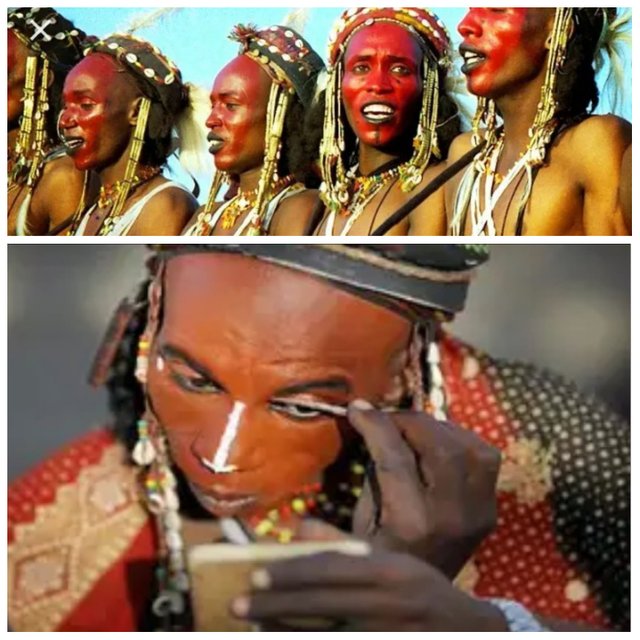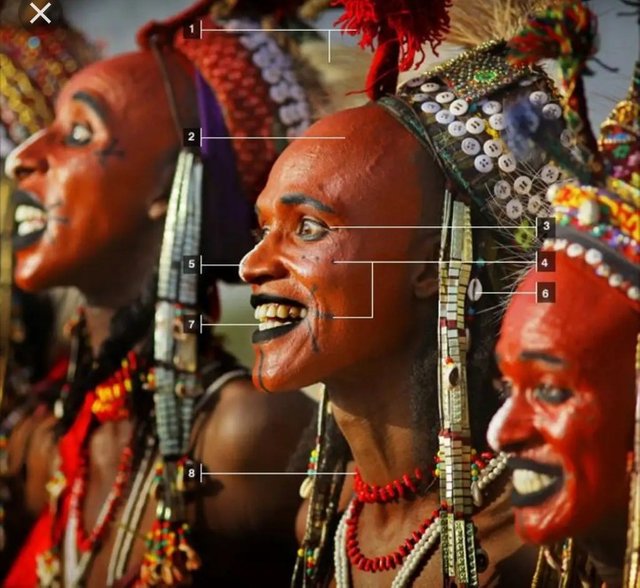Some Amazing African Cultures You Never Knew

Culture is a way of life of a people. We were all taught this in social studies as early as our primary education. The early exposure to culture was in consonance with the fact that everyone needs to understand that lifestyles vary. Traditions/cultures are usually inherited or formed, and they are believed to be sacred. Because of this notion, the adherents act according to the cultural permissions of their background or where they live. Their day-to-day portrayals are within the strictures of their cultures. Africa is embellished with cultures. One thing about some cultures is that they have refused to be dislodged by time and civilisation. They have been resilient to the wind of trend. After a thorough research with my very good friend, By Hilary Akuburunwa, we've discovered some beautiful African cultures. These African cultures will be treated with no intent to disparage or glorify. I am sure you will be surprised by the revelations.
Winning people's wives as prize for male beauty pageant (Niger Republic): In the Wodaabe tribe, of Niger, in West Africa, men are allowed to steal each other's wife. At the annual Gerewol Festival, the Wodaabe men wear elaborate makeup and costumes and parade themselves before the women. If any woman praises any of the men, he takes the woman (who is already married) home as a wife.
Spitting as a form of greeting (Kenya): The Massai tribe found in Kenya and Tanzania spit as a way of saying hello. This is irritating, isn't it? But it is not to them. It is their culture. While the English man would say hello, spitting is a way of greeting there. In addition, when a baby is born, it is required of the elders to drench it in their spittle and call the baby "bad". They believe this would protect the baby from evil spirits. Maasai warriors also spit in their hands before shaking the hands of elders. Another surprising aspect of the Maasai culture is the drinking of animal blood. No one is compelled to do this actually. For those who drink it, it is a nice substitute for wine. An individual of a different nationality might throw up if s/he does this, but it is a people's culture somewhere in Kenya.
Festival of the dead (Malawi): Malawi is another country on the African continent with some cultural practices with the potency of arresting faces with bewilderment. In this country, there is a community called Chewa. During the burial ceremony of a tribe member, it is customary for the body of the deceased to be laundered (washed). The corpse is taken to a sacred place where the cleansing is done by slitting the throat and pouring water through the insides of the dead. The water is squeezed out of the body until it comes out clean. The water is then collected and used to prepare a meal for the whole community. Everyone eats the meal with the satisfaction that the corpse can now be buried. If this is not done, nobody takes the risk of burying the corpse because the consequences will be grave. This revelation will shock many people, but it is the culture of a people; and it is all right with them. As a matter of fact, everyone looks forward to eating meals cooked with this water. For them, it is more delectable than those prepared with normal water.
Bull jumping (Ethiopia):
In Ethiopia, young boys have to undergo some form of ritual to prove their manhood. This involves a series of treacherous and discomforting events. A young boy has to strip naked, run, jump, and land on the back of a bull. This is then followed by running across the backs of several bulls, pulled by the tail and horns by older men. The practice is known as Hamar. Without doing and surviving this, a youth is forbidden to call himself a man. This will amaze many readers. In many parts of the world, even in some countries in Africa, keeping one's penile away from the public is what sustains and foregrounds his status as a man. But in a particular tribe in Ethiopia, it is a different case. A youth there has to make his penile (penis) a public spectacle to assume or confirm his status as a man.
